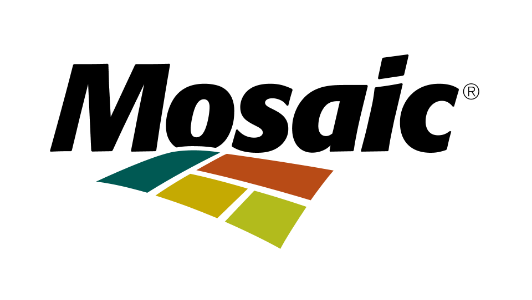 Mosaic Political Activity Transparency |
Mosaic Political Activity Transparency
Mosaic engages in lobbying and direct political giving in compliance with applicable laws. These activities are reported and publicly accessible. To provide additional transparency, we have explained our political activities in each region and provided links to public reports for additional detailed information.
Lobbying
United States
Law requires individuals or entities who engage in lobbying activities to file quarterly disclosure reports (form LD-2). These forms disclose the legislation or topics that were lobbied, the federal officials lobbied, and the approximate cost associated with the lobbying. All LD-2 forms are made available to the public in a searchable database by the Clerk of the U.S. House of Representatives and the Secretary of the U.S. Senate.
Canada
Federal
Individuals and organizations engaged in lobbying activities with federal designated public office holders must register in the Registry of Lobbyists. This includes in-house lobbyists for corporations and organizations when lobbying is a significant part of their duties. The registry provides transparency by making information about registered lobbying public, including monthly communication reports with Designated Public Office holders.
Provincial (Saskatchewan)
Individuals or organizations who engage in paid lobbying activities related to influencing government decisions must register online with the Office of the Registrar of Lobbyists Saskatchewan. This applies to both in-house lobbyists (paid employees of an organization) and consultant lobbyists (those who lobby on behalf of others for payment).
The threshold for in-house lobbyists to register is 30 annual hours of lobbying activities. This includes time spent on research and preparation related to lobbying.
A public online registry is available for citizens to search for individuals and organizations lobbying public office holders, promoting transparency.
Brazil
In Brazil, the “Anticorruption Law“ (Law nº 12.846/2013 and Decree nº 11.129/2022) provides more transparency in private sector relations with the government. It defines rules for the administrative and civil liability of legal entities (companies included) for the practice of acts against the public administration. It typifies acts harmful to the public administration, establishes standards for private integrity programs, establishes rules for the administrative and judicial liabilities and also possible sanctions.
There is also a “Transparency Law” (Law nº 12.527/2011) that establishes rules for transparency and access to information on public agendas (including meetings with private companies), activities, and expenditures. However, these rules are only applicable to public officials and departments of the Government.
Mosaic Political Giving
Mosaic’s approach to political contributions ensures all activities are conducted ethically, transparently, and in full compliance with applicable laws and corporate governance standards. Review our policy.
MosaicPAC | United States
Political Action Committees (PACs) are a right under the First Amendment of the Constitution, governed by federal law, and heavily regulated by the Federal Election Commission. There are different types of PACs, and MosaicPAC is a separate segregated fund (SSF).
MosaicPAC was formed in 2008 and is a registered federal political action committee (PAC) that makes bipartisan donations to campaigns for the U.S. Senate and U.S. House of Representatives. All MosaicPAC contributions to Congressional candidates’ election PACs are strictly limited by law as to MosaicPAC contributions are intended to support candidates who support the non-partisan public policy positions of the company. MosaicPAC does not participate in presidential elections. For specific information on contribution limits, visit the Federal Election Commission website.
MosaicPAC is funded by voluntary donations from eligible Mosaic employees in the U.S. The Mosaic Company does not provide corporate funding to MosaicPAC. All donations made by MosaicPAC to candidate election campaign PACs are disclosed to the Federal Election Commission and are available to the public via the FEC Website
State Election Donations | Florida and Louisiana
Florida
Pursuant to the Florida Election Code and regulations established by the Florida Division of Elections, with the exception of contributions made to political parties or affiliated party committees, no individual or political committee may contribute more than $3,000 per election to a candidate seeking statewide office. Contributions to candidates for retention as a judge of a district court of appeal, legislative office, multicounty office, countywide office, or offices elected on less than a countywide basis are limited to $1,000 per election. For purposes of contribution limits, the primary and general elections are considered separate elections.
Visit Florida's Campaign Finance Database.
Louisiana
Under the Louisiana Campaign Finance Disclosure Act, administered by the Louisiana Ethics Administration Program, individuals, corporations, and labor unions may contribute up to $12,000 per election to candidates for the office of Governor, and up to $6,000 per election to candidates for state legislative offices. These limits apply per election and are subject to applicable reporting and disclosure requirements.
Visit Louisiana's Campaign Finance Database.
Canadian Federal Political Donations
Only individuals who are Canadian citizens or permanent residents can make political contributions. Corporations, trade unions, and associations are not allowed to donate. Contributions must be made with an individual’s own funds. Donations over $200 must be reported with the donor’s name and address. Anonymous contributions over $20 are not allowed.
Third parties, entities other than a political party or candidate, who engage in regulated activities and want to influence and participate the election must register if they engage in activities that cost $500 or more.
A third party is a person or a group that wants to influence an election, other than a registered party, an electoral district association or a candidate. They do not seek to be elected themselves but may support certain political parties or candidates.
Regulated activities are partisan advertising, election advertising, partisan activities and election surveys, as defined by the CEA.
Only the following are eligible to register as a third party:
- An individual who is a Canadian citizen or permanent resident or someone who lives in Canada
- A corporation carrying on business in Canada, as long as it is not a foreign third party as defined in the CEA
- A group, if a person responsible for the group is a Canadian citizen or permanent resident or lives in Canada
Foreign third parties cannot register and cannot incur expenses for regulated activities. Reference guide for third parties can be found on Election’s Canada website here.
Corporate Political Donations | Brazil
Since 2015, following a Supreme Court ruling and the enactment of Law 13.165/2015, Brazil’s electoral legislation (Law 9.504/1997) has prohibited corporate donations to political campaigns, whether for candidates or political parties. Campaign funding is provided by public funds (Party Fund and the Special Campaign Financing Fund) or private resources (candidates' own resources or donations made by individuals).
Mosaic Membership in Trade Associations | All Operations
As listed in our Sustainability Disclosure and Global Reporting Initiative (GRI), Mosaic recognizes the importance and value of being active in industry associations and cross-sector business forums. These common platforms help advance cutting-edge scientific research and best management practices within our company and our industry. We consider the relevance of each engagement opportunity to our business strategies, and we pursue mutually beneficial partnerships.
To view a list of many of the key organizations we engage with and our level of involvement, view our 2024 Mosaic Sustainability Disclosure, pages 28 to 32.
